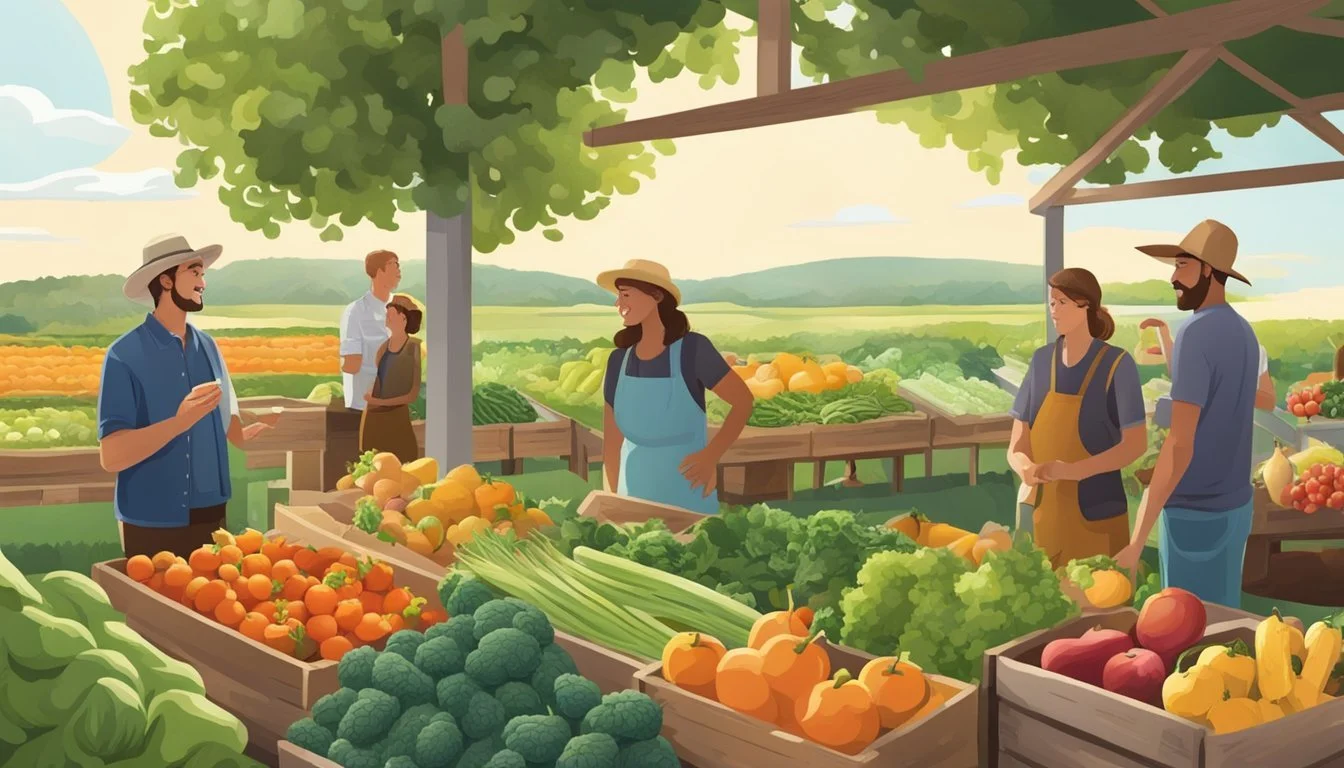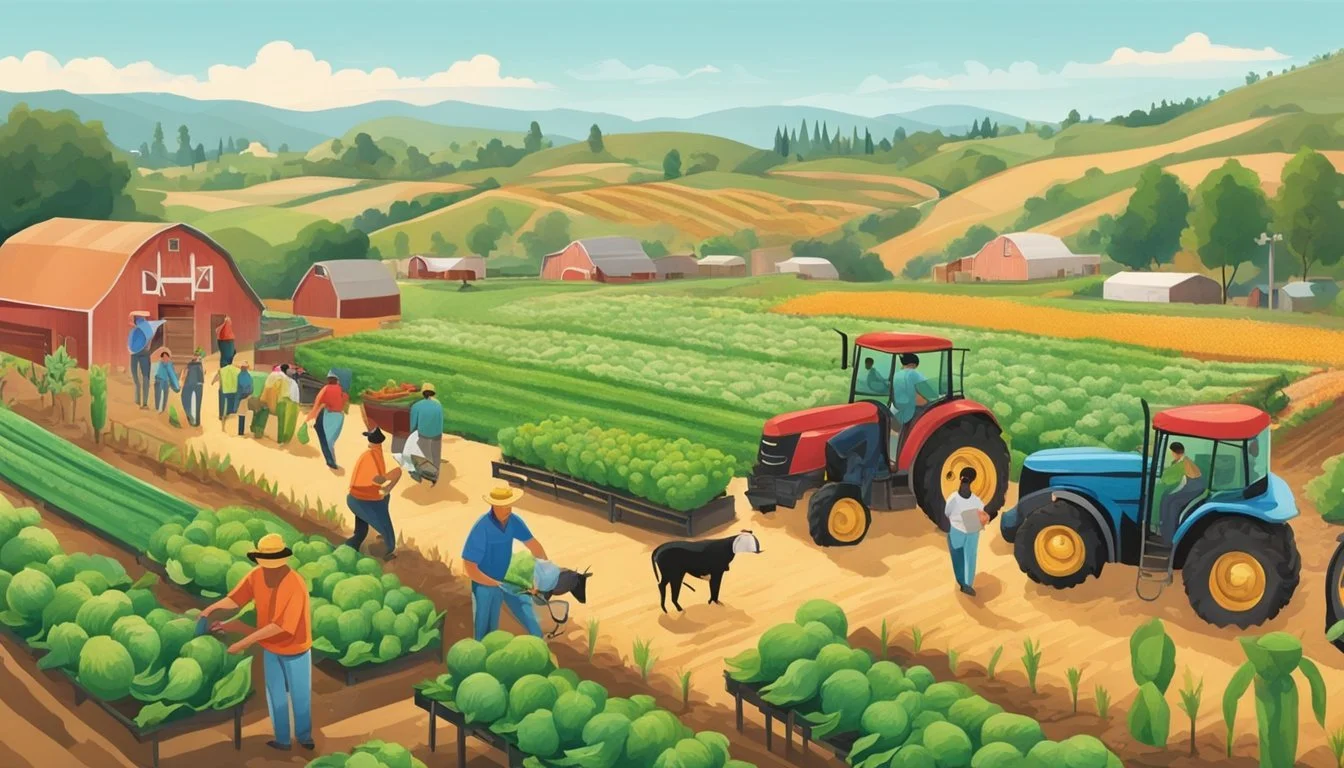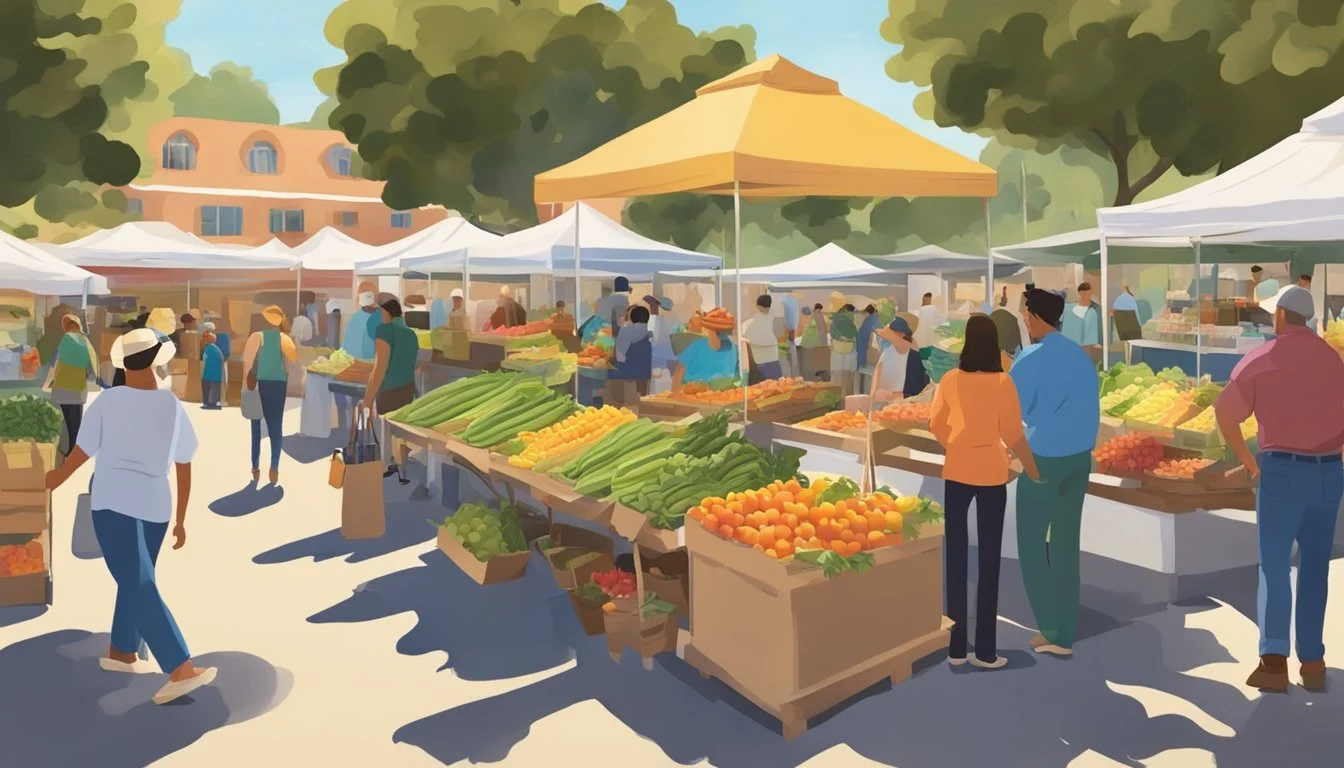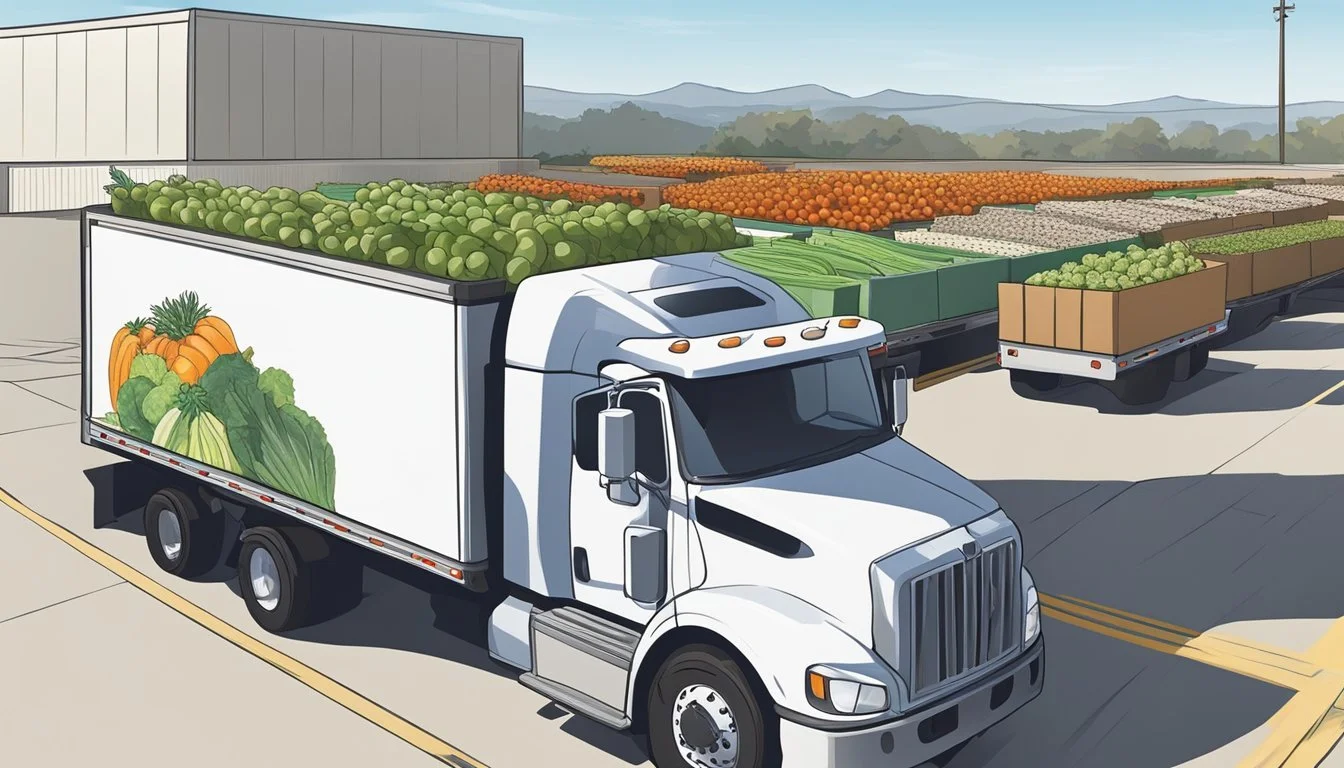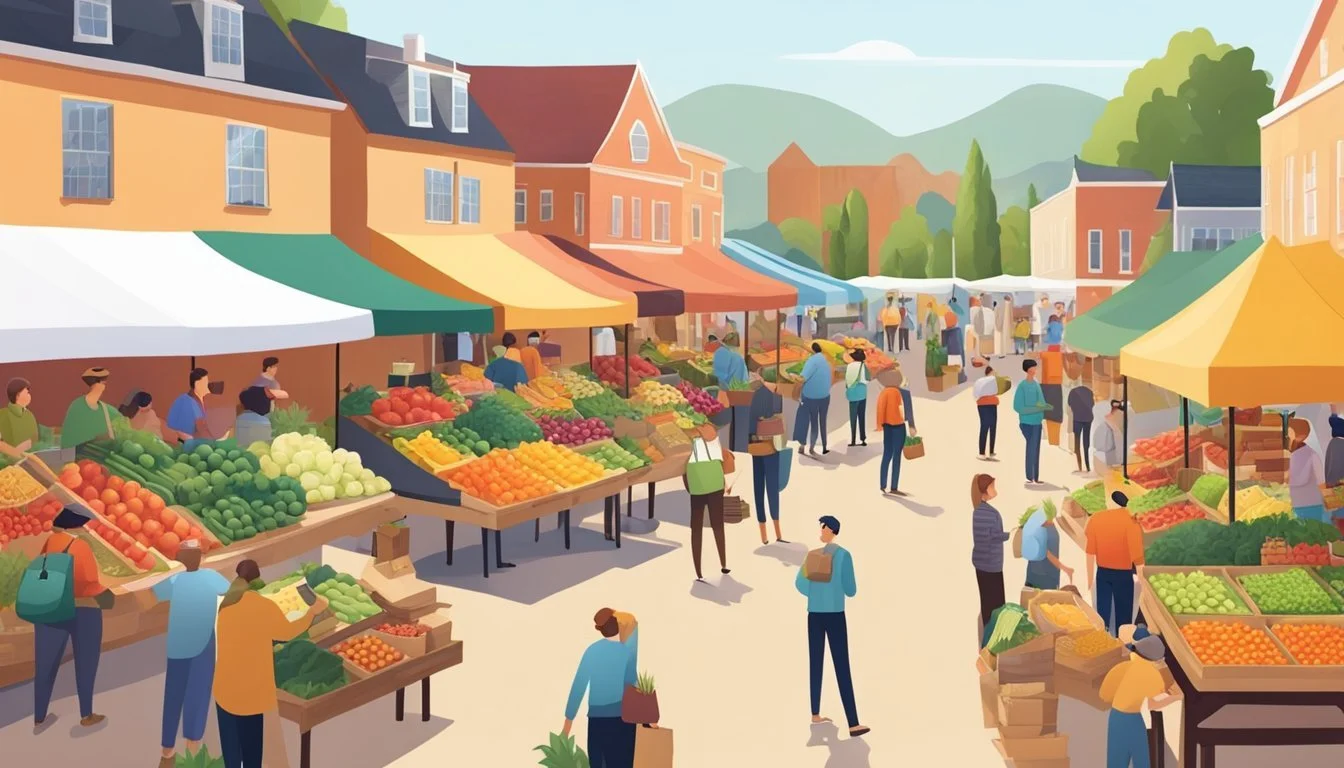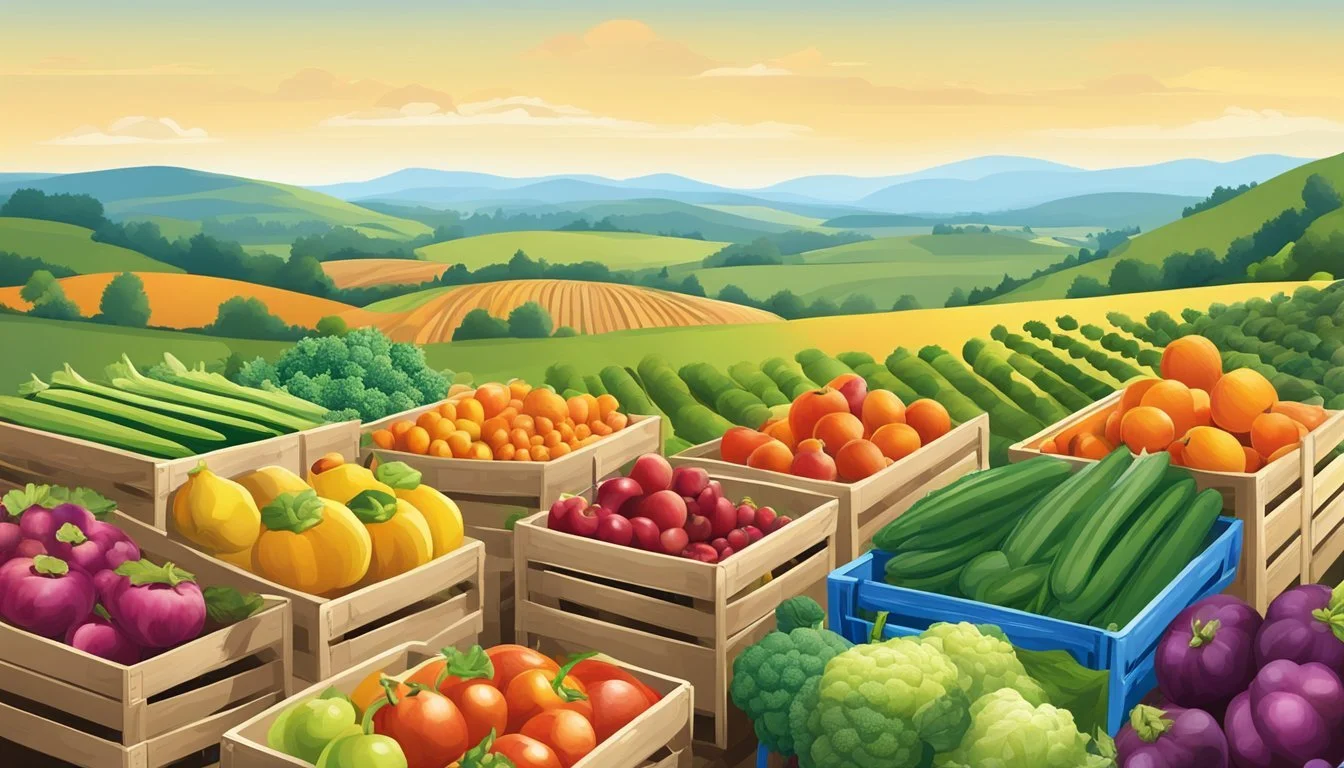Community Supported Agriculture (CSA) in Escondido, CA
A Guide to Local Farm Share Programs
Community Supported Agriculture, or CSA, is a model of food production and distribution that connects local farmers directly with consumers. In Escondido, California, this partnership allows residents to commit to supporting local farms by pre-purchasing shares of the harvest, which in turn provides them with regular deliveries or pick-ups of fresh produce. The appeal of CSA in this region stems from its ability to ensure that consumers receive organically grown fruits and vegetables while simultaneously promoting agricultural sustainability and boosting the local economy.
Escondido's CSA programs are designed to foster a closer relationship between the community and the farmers who cultivate their food. By becoming CSA members, consumers have a unique opportunity to indulge in a seasonal, farm-fresh diet, learn about the food they consume, and understand the farming processes that bring produce from seed to table. Local CSAs like J.R. Organics have been providing this service for years, using only the finest fertilizers and growing techniques, while new farms continue to join the movement, broadening the options available to members.
At its core, the CSA model in Escondido emphasizes the importance of eating local, reducing food miles, and supporting sustainable farming practices. Membership commitments, which can range from monthly to annually, allow the participating farms to plan their crops more effectively, reduce waste, and offer a diversified array of produce to the community. In turn, members enjoy the benefits of having a personal connection with their food source and supporting farming methods that contribute to the health of the environment.
Fundamentals of CSA
Community Supported Agriculture represents a partnership between local farmers and community members. It offers a means for consumers to receive fresh, local produce while supporting area farmers directly.
What is CSA?
Community Supported Agriculture, or CSA, is a model where consumers purchase shares of a farm's harvest in advance. Members of a CSA, therefore, invest in the farm's production and, in return, receive a portion of the crops during the harvesting season. This structure creates a direct relationship between the producers and consumers, bypassing traditional retail avenues.
Benefits of Joining a CSA
Local Economy: Members who join a CSA support their local economy, bolstering the financial stability of local farms. Health: CSA provides access to fresh, often organic, produce, contributing to a healthier diet. Community: Joining a CSA fosters a sense of community among members and between members and farmers. Environment: CSA programs tend to favor sustainable farming practices, reducing the carbon footprint associated with food transport and mass production.
How CSA Programs Work
Typically, a consumer will sign up for a membership with a local farm or a network of farms. This membership is often offered on a weekly or bi-weekly basis. Once subscribed, members receive a box of seasonal produce delivered to designated pick-up points or sometimes directly to the consumer’s doorstep.
Membership: Interested individuals become members by pre-purchasing a share of the season’s harvest.
Delivery: Farmers distribute the produce regularly throughout the season following the schedule agreed upon by the CSA program.
Variety: The contents of each CSA box vary depending on seasonal availability and the farm’s offerings.
By understanding the structure and benefits of Community Supported Agriculture, consumers can make informed decisions about participating in CSA programs in Escondido, CA, and contributing to the sustainable cycle of local food production.
CSA Membership and Support
Community Supported Agriculture in Escondido offers residents an opportunity to engage directly with local agriculture by becoming CSA members. Subscribers receive a regular supply of fresh produce while providing essential support to local farmers.
Choosing the Right CSA Program
When selecting a CSA in Escondido, potential members should consider the variety and frequency of produce delivery. Some CSAs provide options such as weekly or bi-weekly shares, while others might offer monthly or quarterly memberships with a commitment of at least twelve weeks. It is essential for consumers to evaluate the size of shares offered, typically ranging from small to large, and to select one that suits their household needs. Factors like pickup location and home delivery services should also influence the decision.
Supporting Local Farms
Membership in a CSA is a form of investment in local farms. By subscribing, members allow farmers to plan their crop rotations and finances with greater certainty. Escondido's local growers benefit directly from this model, which can lead to an expanded capacity to serve local vegetable needs adequately.
Contributions to Local Economy
CSA programs contribute to the local economy by keeping food dollars within the community. This economic relationship enhances the sustainability of small farms and bolsters the local food supply. Members play a critical role by providing farmers with a reliable income source, which can then be reinvested into their operations, further enriching the community's agricultural base.
Produce and Products
Escondido's CSA programs offer an abundance of fresh produce, ranging from vegetables to fruit. The commitment to quality and sustainability is evident in their seasonal and organic options.
Seasonal Varieties Offered
CSAs in Escondido provide a diverse array of produce dependent on the time of year, ensuring that members receive a share of the freshest seasonal harvest. In spring, one might find an assortment of leafy greens and tender herbs, progressing to summer's colorful variety of tomatoes, stone fruits like peaches, and early root vegetables. Fall brings hearty squashes and cruciferous vegetables, while winter’s offerings include citrus and a second round of cooler weather greens.
Organic and Pesticide-Free Options
CSA farms like J.R. Organics pride themselves on offering produce grown using organic farming techniques, which means their subscribers receive vegetables and fruits free from synthetic pesticides and fertilizers. This focus on organic methodology supports a healthier ecosystem and provides nutrient-rich produce to their members. Options such as rock phosphate, green sand, worm castings, and compost are utilized to nourish crops naturally.
In summary, the CSAs near Escondido, CA offer a varied selection of both seasonal and organic produce, encompassing an array of fresh vegetables and fruits. These local farms connect members to the land and their food, driving community engagement and fostering sustainable agriculture practices.
Delivery and Distribution
Community Supported Agriculture (CSA) programs in the Escondido area offer various methods to distribute their fresh produce. They primarily include home delivery services and local pick-up locations, catering to the convenience of members in areas including Oceanside, Vista, Carlsbad, San Marcos, Fallbrook, Solana Beach, and Rancho Bernardo.
Home Delivery Service
Many CSA farms near Escondido offer home delivery services to ensure that members receive their share of the harvest with the utmost convenience. These services often extend to neighboring communities such as Oceanside, Carlsbad, and Solana Beach. For example, Garden of Eden Organics delivers seasonal, certified-organic produce directly to the homes of CSA members on a weekly basis.
Local Pick-Up Locations
CSAs also facilitate local pick-up locations where members can collect their fresh produce. These locations are strategically placed to serve members in a variety of areas including Vista, San Marcos, and Fallbrook. Specific farms like J.R. Organics may have designated pick-up days and times, such as Wednesdays from 1 to 4:30 PM, providing a reliable schedule for members to plan their pickups in the area, including in Rancho Bernardo.
Environmental Impact and Sustainability
Community Supported Agriculture (CSA) initiatives in Escondido, CA, are influential in promoting environmental health and sustainability. They focus on regenerative farm practices and the benefits of organic farming to foster a more sustainable ecosystem.
Regenerative Farm Practices
Regenerative farming is a cornerstone of CSA programs in Escondido, where the emphasis is placed on improving soil health and increasing biodiversity. Farmers employ practices that go beyond avoiding pesticides, including the use of green sand, worm castings, and compost. These methods not only enrich the soil but also ensure that the environmental footprint is minimized.
Key practices include:
Crop rotation to enhance soil health
Cover cropping to prevent erosion
Use of natural fertilizers like rock phosphate and kelp
Conservation tillage to maintain soil structure
Benefits of Organic Farming
CSAs involving certified organic produce are vital for ensuring food safety and ecosystem balance. By abstaining from synthetic pesticides and fertilizers, these farms contribute to maintaining a clean water supply and reducing pollution.
The benefits include:
Pesticide-free: Less chemical runoff into local water bodies
Healthy soil: Soil acts as a carbon sink, mitigating climate change
Lower energy use: Organic farms tend to use less energy due to reduced reliance on synthetic inputs
Fostered biodiversity: Supports a range of wildlife and beneficial insects
CSA Extras and Community Benefits
Community Supported Agriculture in Escondido not only offers fresh produce but also enhances its share with delightful extras such as eggs, herbs, and flowers, alongside providing educational opportunities for the community.
Eggs, Herbs, and Flowers
Members of Escondido CSAs often receive more than just vegetables in their weekly share. Farmers include fresh eggs from chickens raised on the farm, providing a reliable source of protein. The eggs are collected with care to ensure they are as fresh as possible for community members. In addition to eggs, herbs like basil, rosemary, and cilantro are frequently offered, giving families the flavors they need to elevate their home-cooked meals. Moreover, many CSAs cultivate a variety of flowers that can be added to shares. These locally-grown flowers not only beautify the homes of CSA members but also support pollinator populations that are crucial for healthy ecosystems.
CSA Extras:
Eggs: Freshly laid, high-quality
Herbs: Variety of culinary uses
Flowers: Aesthetic enhancement, environmental benefit
Educational Opportunities
CSAs in Escondido are more than just a food source; they become an education center for the community. Families and individuals are often invited to participate in farm tours, workshops, and seasonal events that not only educate them about sustainable farming practices but also help them understand where their food comes from. These learning experiences are invaluable, reinforcing the connection between the land and the dinner table. Children benefit significantly, gaining insights into agriculture that can shape their dietary habits and environmental consciousness for years to come.
Educational Offerings:
Farm Tours: Insights into everyday farm operations
Workshops: Seasonal food preparation, sustainable practices
Seasonal Events: Hands-on experiences, farm-to-table connection
Joining and Participating in a CSA
Community Supported Agriculture (CSA) programs in Escondido, CA, offer residents the chance to purchase fresh, locally-grown produce directly from farmers. By signing up for a CSA, members receive regular deliveries of a variety of freshly picked fruits and vegetables.
How to Sign Up
To join a CSA in Escondido, individuals should first research local farms that offer CSA programs and compare their share options, pick-up locations, and pricing. Most farms require interested parties to:
Complete an application: This can usually be done online or at local markets where the farm is present.
Select a share size: Choices often range from small to large boxes, depending on household needs.
Choose a subscription duration: This may vary from a few months to an entire growing season.
Pay for the share: Payment methods and schedules differ per farm but are typically required upfront to support the farm's operations.
What to Expect in Your CSA Box
Upon signing up, CSA members can expect a CSA box filled with a variety of produce. The contents of the box are contingent on what is seasonally available and freshly harvested. A typical CSA box may include:
Vegetables: such as tomatoes, carrots, and leafy greens
Fruits: like strawberries, apples, or citrus, depending on the season
Herbs: basil, thyme, or parsley to complement the produce
A large box is suitable for families or those who wish to incorporate more vegetables and fruits into their diets. Members should be ready to explore new types of produce and adapt to eating seasonally, as each box reflects the farm’s current harvest.
CSA Management and Farmer Relations
Successful community-supported agriculture in Escondido hinges upon effective management by CSA owners and the establishment of robust relationships with local farmers. CSA models rely on a direct link between the farm and consumer, often facilitated by a subscription service.
Role of the CSA Owner
The CSA owner must exhibit adeptness in business management and customer engagement. They are responsible for the subscription model's smooth operation, ensuring shares are priced accurately and distributed on time. In Escondido's CSAs, such as J R Organics, the owner oversees the sourcing of organic produce and any value-added products offered to members. Importantly, they play a crucial role in certifying that all produce adheres to the expected standards, including the use of quality fertilizers like rock phosphate and kelp, as well as worm castings for soil health.
Building Relationships with Farmers
Strengthening relationships with farmers is critical for CSA sustainability. Owners and farmers alike benefit from a familial rapport, which stimulates a reliable supply of produce and a shared commitment to the CSA's success. Transparent communication regarding crop planning and harvest timelines ensures the owner can meet subscribers' expectations. Collaboration with local farmers, such as those highlighted in Brian's Farmers' Markets CSA, connects customers with a variety of pesticide-free fresh options, reinforcing the bond between community and agriculture.
Resource Guide
This section provides information on local CSA initiatives in Escondido and offers practical advice on handling the produce received.
Local CSA Programs in Escondido
Escondido boasts several CSA programs committed to delivering fresh, organic produce to the community:
J R Organics: Offering certified organic produce since 1986, J R Organics is known for using quality fertilizers such as rock phosphate, green sand, and kelp. Their CSA program ensures that subscribers receive premium-quality produce.
Website: J R OrganicsGarden of Eden Organics (GOE Organic): GOE Organic fosters direct consumer-farmer support through its CSA program. Memberships are available on a monthly, quarterly, or annual basis with a minimum twelve-week commitment.
Address: 9928 Protea Gardens Rd Escondido, CA 92026
Website: Garden of Eden OrganicsThe San Diego County Farm Bureau: Provides information on local CSA programs where consumers can subscribe for bi-weekly fresh produce deliveries.
Website: San Diego County Farm Bureau CSA
Cooking and Storage Tips
Once residents receive their CSA produce, proper storage and cooking methods are essential:
Storage: To maximize freshness, it's critical to understand the best ways to store specific types of produce. Leafy greens, for instance, should be stored in the crisper drawer of the refrigerator, while root vegetables last longer in a cool, dark place.
Recipes: Utilizing recipes that highlight the fresh ingredients from the CSA box is both rewarding and healthful. Many local CSA programs and resource websites such as LocalHarvest provide seasonal recipes tailored to the contents of a typical CSA share.
Closing Thoughts on CSAs
Community Supported Agriculture (CSA) provides a pathway for individuals and families in Escondido, CA, and throughout California, to access fresh, high-quality produce. By participating in a CSA, members showcase their love and commitment to their health, their family's well-being, and sustainable farming practices.
The local CSA programs foreground a crucial health component by supplying organic fruits and vegetables, which omits the worry about harmful pesticides. These programs support families by offering a variety of produce, ensuring a balanced diet rich in nutrients. The connection between California's bountiful agriculture and its community is further strengthened through these initiatives.
Freshness: CSA members enjoy the harvest at the peak of freshness, which maximizes the taste and nutritional value of the produce.
Education: CSA programs often include opportunities for members to learn about the food they consume and the methods used to grow it.
Community: A shared commitment to CSAs can foster a tangible camaraderie among members and between consumers and growers.
Environment: Support for CSAs translates into support for environmentally conscious farming, preserving the robustness of California's diverse ecosystems.
In Escondido and beyond, CSAs are more than just a source of food; they are an investment in a sustainable future. By supporting these initiatives, communities take a crucial step towards a more responsible and intimate relationship with their food sources.

